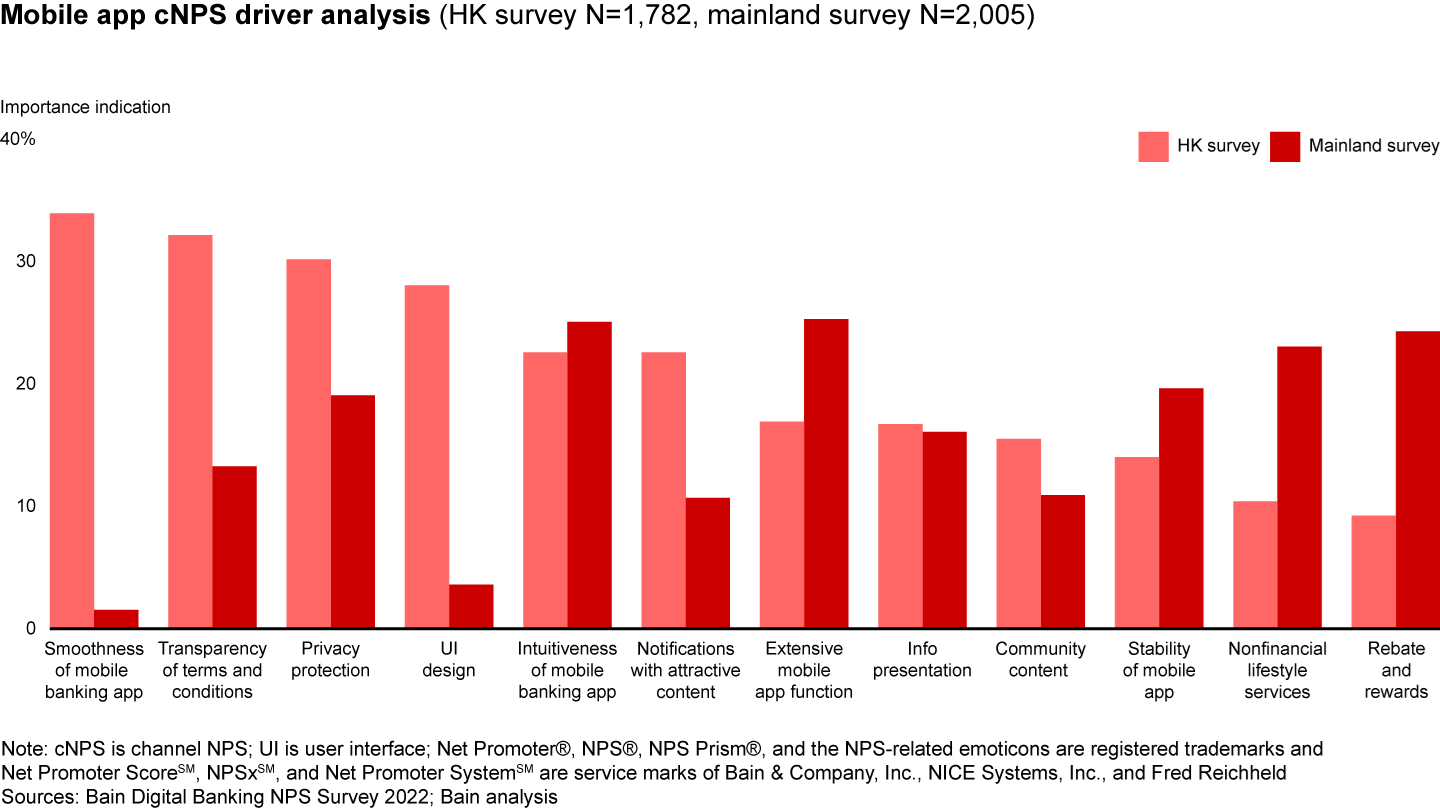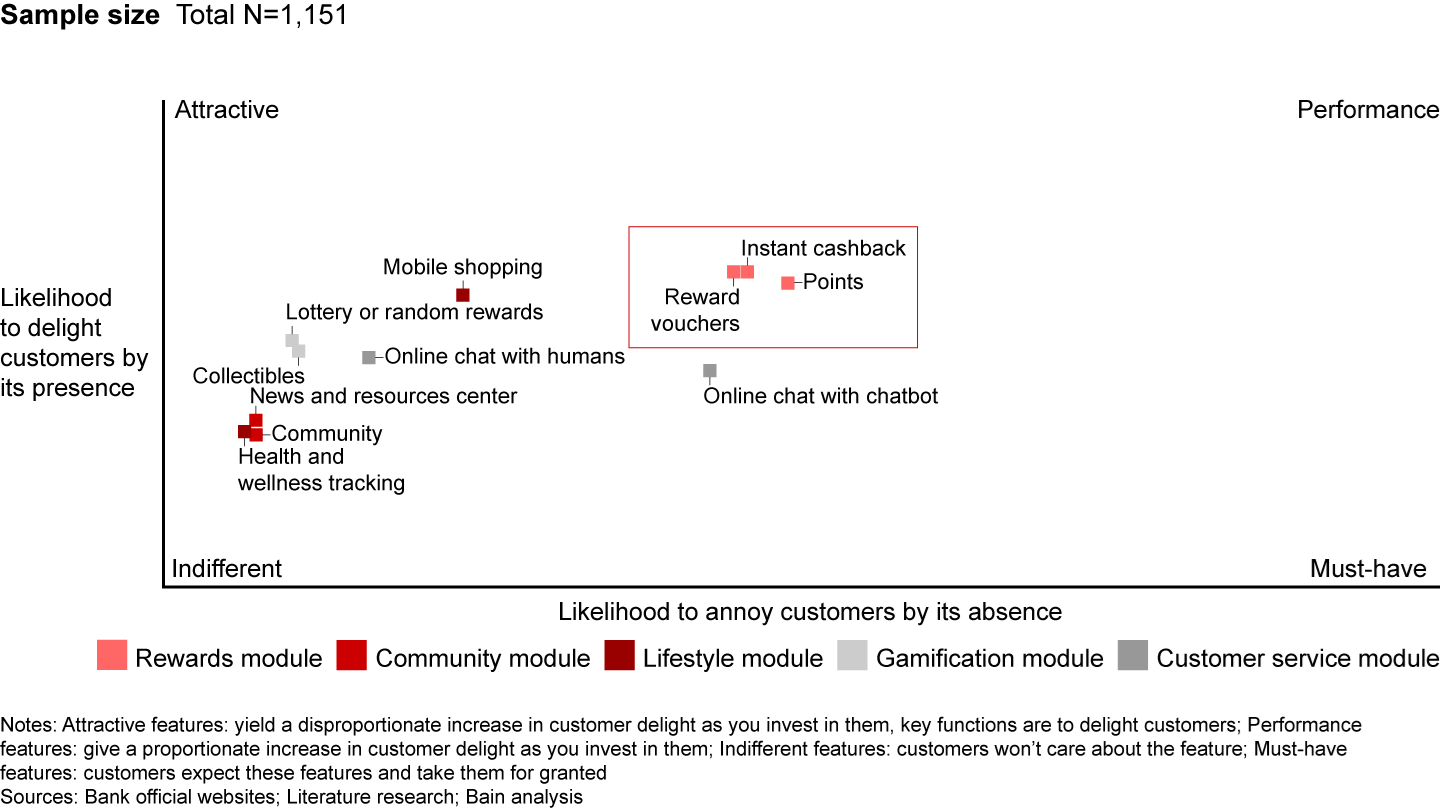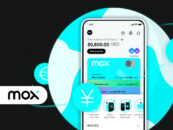
Hong Kong’s Banking Customers Expectations Are Shifting — Here Are The Key Findings
by Fintech News Hong Kong February 16, 2023In Hong Kong, COVID-19, the advent of virtual banks and changing customers’ expectations are transforming the retail banking landscape, prompting customers to increase their usage of online channels and embrace digital financial products, a new survey by Bain and Company shows.
The study, which polled 1,400 retail banking customers in Hong Kong in September 2022, revealed key customers’ expectations, outlining the features and functionalities they find most appealing.
In particular, results from the research uncovered four major themes surrounding customer experience, revealing that today’s customers are demanding mobile-centricity, digital wealth management services, rewards and compelling offers.
Mobile-centricity and the evolution of branches
Findings from the research show that mobile banking apps and online banking have become the most-used channels in Hong Kong.
In Hong Kong, mobile banking penetration reached nearly 80% and less than half of the respondents polled by Bain and Company indicated having set foot into a banking branch in the past year.
Mobile banking experience also has the highest correlation to positive overall customer experience, the research found, demonstrating how mobile banking has become a critical vector of customer satisfaction.
When asked about the characteristics they valued the most in their mobile banking experience, Hong Kong customers cited the smoothness of the app, transparency and privacy protection. Unlike their mainland counterparts, however, Hong Kong customers showed low interest in non-financial lifestyle features and super-app functionalities.

Most important mobile banking app functonalities for retail banking customers, Source: Bain and Company, 2022
Results also revealed declining bank branch visitation, with Hong Kong customers indicating visiting a branch once a month on average. But despite declining rates, bank branches are still valuable to customers, the report says, and have the highest change of either winning over customers or pushing them away.
Physical banking branches must be enhanced with on-site digital channels as part of a seamless omnichannel experience, it says. For banks, this may mean smaller footprints but deeper ties to digital channels.
Wealth management services should blend digital and human touch
Adoption of digital financial services has historically been centered around payments and consumer finance. But recently, customers have started showing interest in engaging with and purchasing other financial products online, including mutual funds and insurance products.
Bain and Company, which asked Hong Kong how they purchased mutual funds and insurance products over the past year, found that of those who purchased from a bank, 45% of mutual funds and 40% of life insurance policies (by value) were bought through their bank’s mobile app.
While these results show that digital tools have become integral to the customer journey, human support is still needed. This is evidenced by the fact that even though 75% of the respondents said they completed their mutual fund customer journey digitally, 10% of them said they needed human support for part of the process.
According to the report, these findings show that a digital-human approach is the most relevant model for retail wealth management. This could translate, for example, into a journey that would start at the branch with a face-to-face meeting with a relationship manager before moving at a later time to text or video calls through a secured platform on the bank’s mobile app.
Hong Kong retail customers show high interest in rewards
Another significant finding from the study is the appeal Hong Kong customers have for rewards, which oftentimes translates into superior experiences.
When asked which non-banking mobile app features they believe are the most impactful, Hong Kong retail banking customers put rewards, including vouchers, instant cashback and points, at the top of the list, identifying these as the features with the highest likelihood to delight them when offered, or to annoy them if absent.
Customer service modules like chatbots were identified as another must-have function for Hong Kong customers. At the end of the spectrum, meanwhile, customers show little interest in lifestyle and community modules such as health and wellness trackers, and user communities.

Features Hong Kong retail banking customers value the most, Source: Bain and Company analysis, 2022
Advent of virtual banks shakes up banking industry
In Hong Kong, the advent of virtual banks has shaken up the banking industry and profoundly changed customers’ expectations.
According to Bain and Company, these digital banks are differentiating themselves from incumbents by delivering attractive customer rewards and referral incentives, providing unique value propositions, and superior customer experiences.
Because virtual banks are laser-focused on customer experience, they oftentimes offer faster loan approvals, lower interest rates, more flexible repayment terms, and easier-to-use digital platforms for consumer finance products. These digital players also leverage technology like data analytics and artificial intelligence (AI), which enable them to provide better financing plans as well as speedy and customized financial solutions.
Another compelling functionality Hong Kong’s virtual banks are providing is embedded finance. Ant Bank, for example, leverages a partnership with AlipayHK to offer a mini-app inside the digital payments platform, allows banking customers to access their accounts right from the app and not needing to switch to another platform.
Hong Kong’s eight virtual banks have witnessed notable traction since launching in 2020. In the span of less than three years, they managed to open a combined 1.5 million new accounts, which, given Hong Kong’s total population of 7.4 million, is an impressive figure, the Bain and Company report says.








